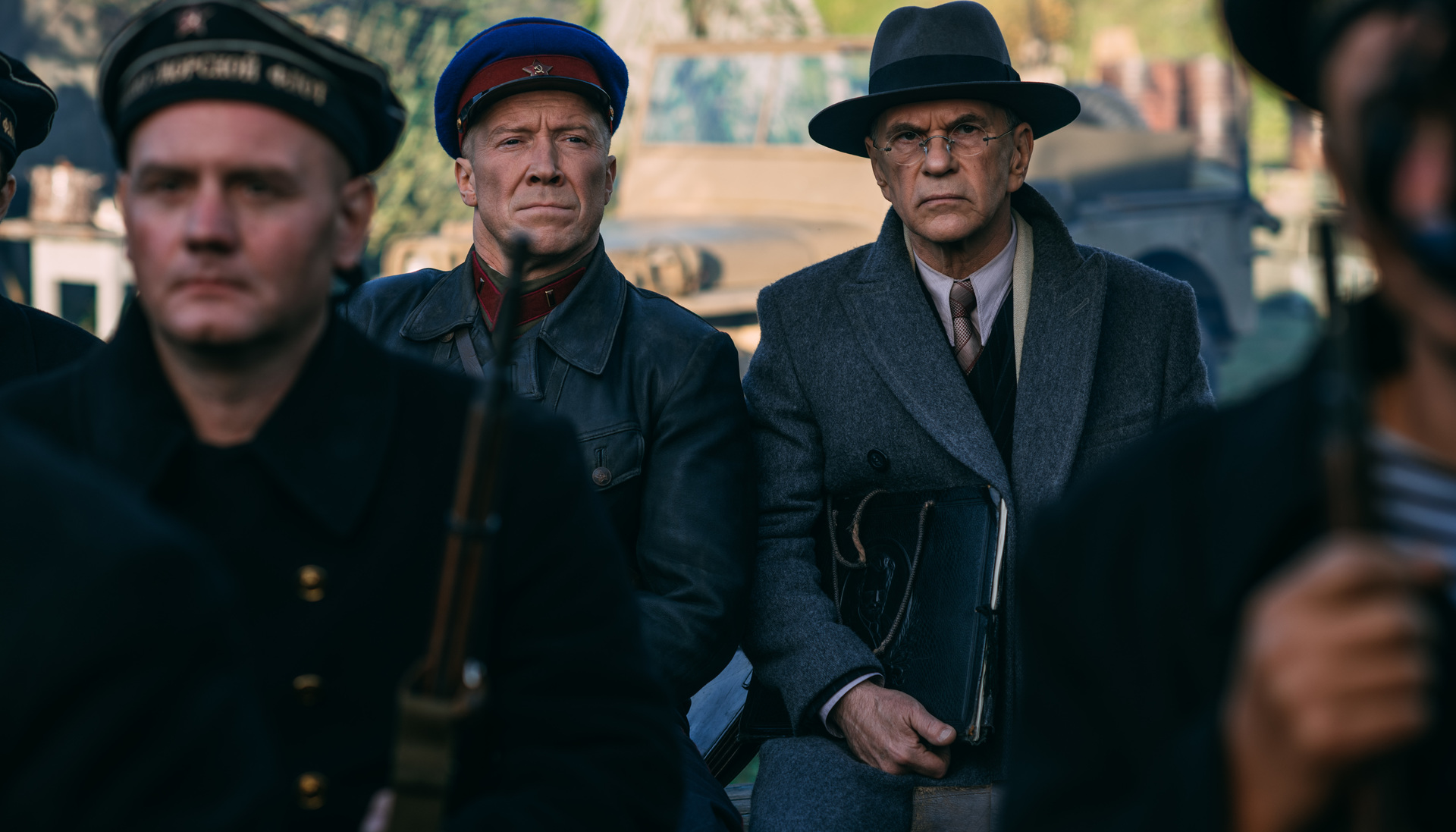On Monday, November 8, the TV channel "Russia 1" begins showing the serial historical drama "The Seventh Symphony", named after one of the most famous works of Dmitry Shostakovich.
This composition was first performed on March 5, 1942 in Kuibyshev, and on August 9, in Leningrad.
There the symphony was performed by the orchestra, assembled with great difficulty by conductor Karl Eliasberg.
The performance was broadcast on radio and loudspeakers.
It inspired the inhabitants of the besieged city.
Soviet violinist David Oistrakh called the composition "a prophetic statement of victory over fascism."
The series was directed by Alexander Kott, who shot the film "Brest Fortress".
In the main role - Alexey Guskov.
Alexey Kravchenko, Timofey Tribuntsev, Elizaveta Boyarskaya, Lydia Velezheva, Victoria Tolstoganova and other actors also starred in "The Seventh Symphony".
The action of the picture unfolds around Karl Eliasberg performed by Guskov. The hero is tasked with performing Shostakovich's Seventh Symphony in Leningrad. The task seems impossible - the orchestra has almost collapsed, and the complex composition requires the participation of 80 artists. An employee of the NKVD Anatoly Seryogin is given to Eliasberg to help. He, who is not the greatest connoisseur of art, considers the work of the orchestra to be an empty occupation, and his relationship with the conductor does not add up. However, Seregin also cannot refuse to complete the task.
Already in the first minutes of the narration, the viewer is immersed in the dark, heavy atmosphere of the 1940s, which only intensifies with the development of the plot.
The tragic story of one family that fell apart due to the war unfolds on the screen, and the specific color correction and stylistics of the frames as a whole refer to the old, Soviet cinema, enhancing the immersion effect.
Shot from the series "Seventh Symphony"
© "Russia 1"
The story of the orchestra, which Karl Eliasberg is trying to assemble, runs through the entire plot of the multi-part tape.
The musicians' personal dramas unfold against the background - love, jealousy, rash actions.
The key theme of the series is different, however, a significant part of the timekeeping is given precisely to such plots, thanks to which the picture becomes more lively and voluminous.
Viewers who expect to see the drama about the Seventh Symphony should be prepared for the fact that the narrative based on historical facts (according to producer Sergei Melkumov, the collection and preparation of the orchestra is presented in the series as authentically as possible) sometimes transforms into melodrama.
First of all, viewers may be interested in the unspoken opposition of Karl Eliasberg and Anatoly Seryogin and the internal transformation of the characters.
Even before the events around the Seventh Symphony, they had a personal conflict, which naturally provoked additional tension when they met again.
Heroes appear on the screen as perfect opposites.
One is a finely tuned man of art, the other is a cruel and ruthless employee.
But despite the difference in characters, Eliasberg and Seryogin have a common feature (due to their type of activity, it manifests itself in different ways): both do not attach much importance to the desires and tragedies of others, making an exception only for the family, and give all their strength to work.
Already in the first episodes, the changes taking place with the heroes of Guskov and Kravchenko are visible.
Both under the influence of each other and as a result of external events, men gradually reconsider their attitude to many things, and above all to people, and open up from new sides.
Shot from the series "Seventh Symphony"
© "Russia 1"
All these changes were convincingly demonstrated to the performers of the main roles.
First of all, I would like to note Alexei Guskov, who masterfully conveyed the dedication of his hero, his desire even in besieged Leningrad to “do at least something for art,” and the conductor's restrained dislike for his partner.
And in general, Guskov is very organic in the image of a conductor: in his practiced movements, all the emotions and energy with which the leader of the orchestra does his work are visible.
Alexey Kravchenko is dramatic in the opening scene, especially in contrast to his further behavior, however, with the change in the degree of tension, everything falls into place.
This acting duo is in the foreground during the series and sometimes outshines the others, but the performers of the supporting roles are also natural in their images.
Sad, exhausted characters with emaciated faces and pain in their eyes find sympathy from the viewer, and skillful make-up emphasizes the effect produced.
As the director Alexander, Kott notes, "The Seventh Symphony" is a series "not about Shostakovich and not about how he wrote the symphony," but about "the people who performed it."
One cannot but agree with him: despite the documentary basis, first of all, this project is a dramatic story about human destinies that collapsed during the war, as well as about hope, the search for strength and moving forward in spite of everything.

